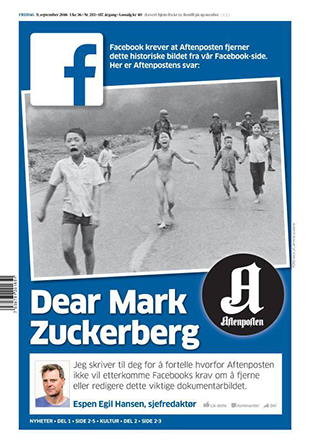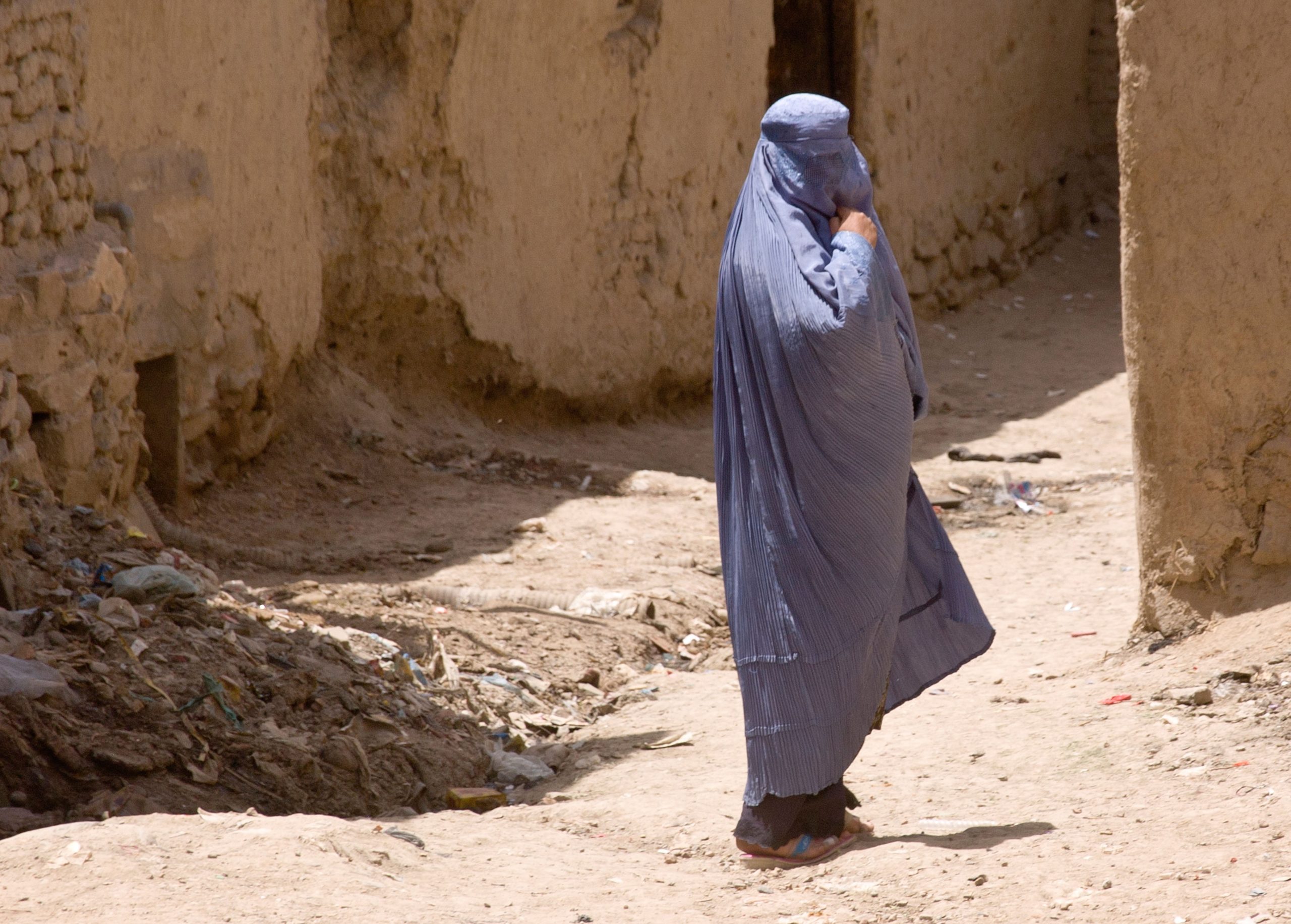 Index on Censorship, a global organisation that campaigns for free expression, fully supports the action of Norway’s Aftenposten newspaper in refusing a request from Facebook to remove an iconic photo of the Vietnam War that features a naked child running from a napalm attack.
Index on Censorship, a global organisation that campaigns for free expression, fully supports the action of Norway’s Aftenposten newspaper in refusing a request from Facebook to remove an iconic photo of the Vietnam War that features a naked child running from a napalm attack.
The social media platform later reversed its decision.
Aftenposten, Norway’s largest newspaper by circulation, said in a front-page editorial on 9 September that Facebook emailed the newspaper to demand the removal of a documentary photograph from the Vietnam War made by Nick Ut of The Associated Press. “Less than 24 hours after the email was sent, and before I had time to give my response, you intervened yourselves and deleted the article as well as the image from Aftenposten’s Facebook page,” Aftenposten’s editor in chief said in the editorial, written as a letter to Facebook CEO Mark Zuckerberg.
Index is shocked and disturbed by the behaviour of Facebook in this matter. We understand that Facebook, as a private company, has the right to impose terms of service as it sees fit and this includes policies with which we may not agree – such as its policies on nudity. However, its actions in this case demonstrate the crucial role that context plays in assessing what content should be removed. As Aftenposten editor Espen Egil Hansen writes: Facebook rules “don’t distinguish between child pornography and famous war photos”.
Furthermore, Facebook’s decision undermines media freedom by removing from an independent media outlet’s own page an image and article that that organisation has made the considered decision to publish. This calls into question the entire model of Facebook as a social media platform. If Index, for example, is not able to freely publish articles on our own Facebook page that we feel to be important, what purpose is there for us to use Facebook at all? Facebook ceases in this scenario to be a champion, or even a conduit, of free speech.
Finally, Facebook should be a platform for debate. We understand from Aftenposten that when Norwegian author Tom Egeland challenged a decision by Facebook to remove the picture of Phan Thi Kim Phuc from a post he made, he was excluded from Facebook. This, again, flies in the face of the notion that Facebook is a platform for open debate.
Open debate, including the viewing of images and stories that some people may find offensive, is vital for democracy. Platforms such as Facebook can play an essential role in ensuring this. We urge Facebook not just to overturn this decision but to renew its commitment to providing a platform that allows for public debate. This means supporting the free sharing of legal information no matter how offensive it may appear to others.





